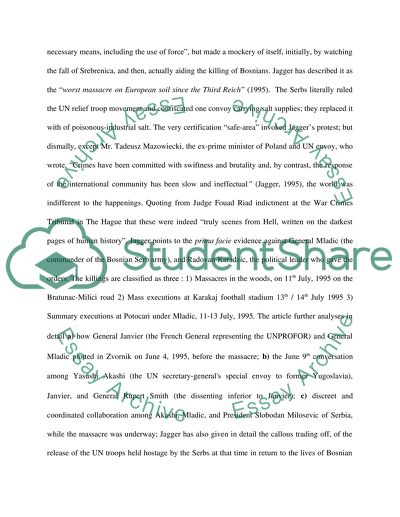Cite this document
(“The Betrayal of Srebrenica by Ms. Bianca Jagger, Book Report/Review”, n.d.)
Retrieved from https://studentshare.org/literature/1524915-the-betrayal-of-srebrenica-by-ms-bianca-jagger
Retrieved from https://studentshare.org/literature/1524915-the-betrayal-of-srebrenica-by-ms-bianca-jagger
(The Betrayal of Srebrenica by Ms. Bianca Jagger, Book Report/Review)
https://studentshare.org/literature/1524915-the-betrayal-of-srebrenica-by-ms-bianca-jagger.
https://studentshare.org/literature/1524915-the-betrayal-of-srebrenica-by-ms-bianca-jagger.
“The Betrayal of Srebrenica by Ms. Bianca Jagger, Book Report/Review”, n.d. https://studentshare.org/literature/1524915-the-betrayal-of-srebrenica-by-ms-bianca-jagger.


